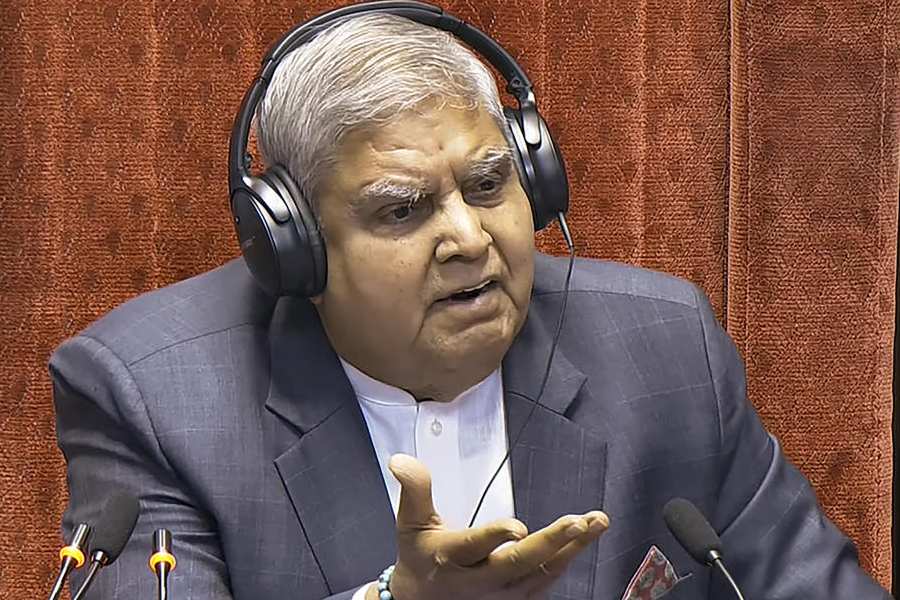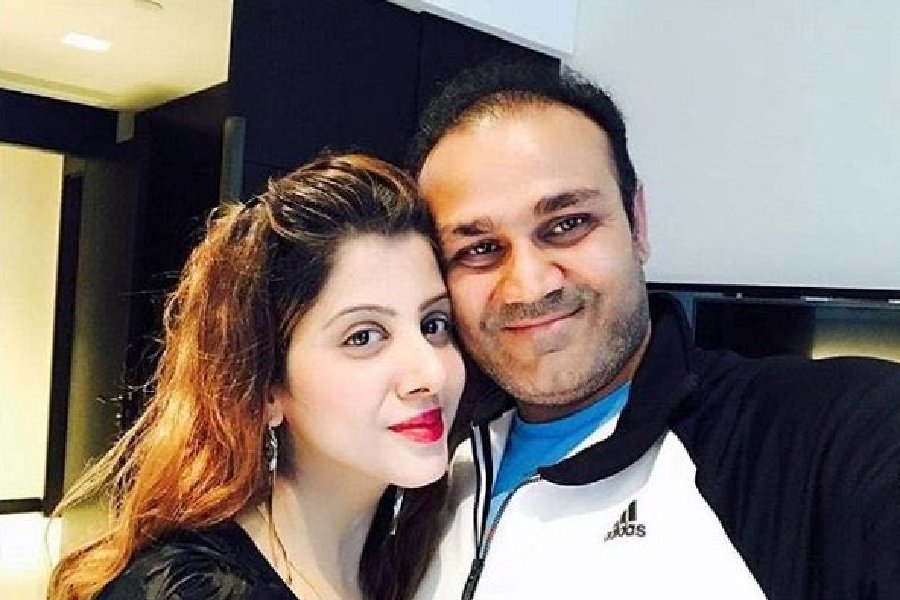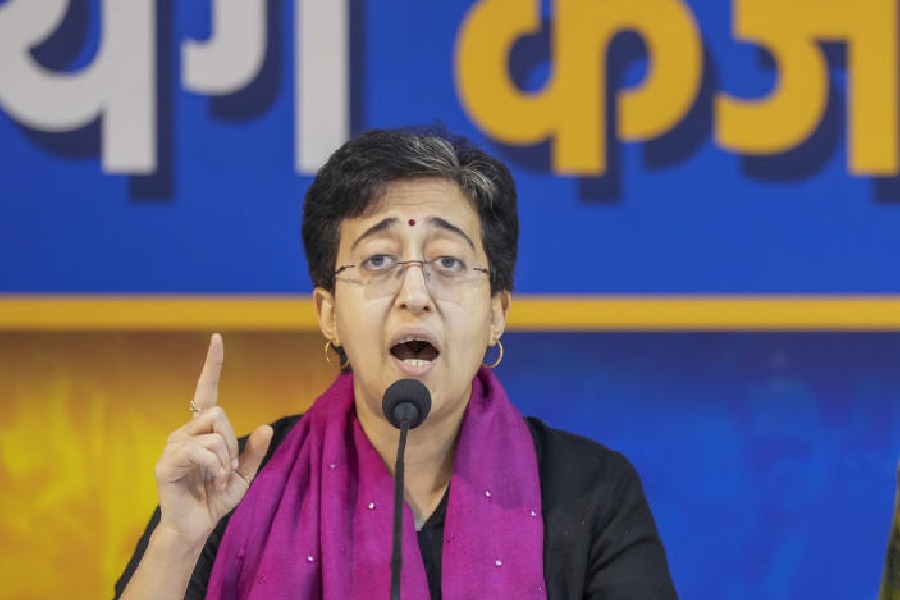She loves to read crime novels but not the gory and grizzly kind. Anuja Chauhan is a fan of what she calls ‘cosy crimes’ and has abundantly gorged on Agatha Christies and Dorothy Sayers. So, it’s no surprise that after five bestselling novels around romance and its various trepidations, the author has now produced a fast-paced whodunnit ‘pun’nily titled Club You To Death (HarperCollins India; Rs 399) that launched on February 26.
Lawyer Akash ‘Kashi’ Dogra has a girlfriend Kuhu Bannerjee and he has denounced the high-flying ways of the Delhi elite, refusing to step foot into the famed Delhi Turf Club, famous for propagating upper caste hegemony and some ridiculous rules to boot. However, a chance encounter with the beautiful and petite Bambi Todi, who had broken his heart in the past, sends Kashi reeling into piles of emotions that he didn’t know existed.
It also doesn’t help that his beloved Bannerjee is cancelling long-made Goa plans to help build a school for children in Odisha. To further his turmoil, there is a sudden death at the DTC, the day after Kashi steps into the hallowed grounds after many years. With an old, feminist, Poirot-esque ACP Bhavani Singh on the heels of the criminal, what ensues is an often thrilling and often funny narration of a murder mystery.
The author, who has been married for the past 27 years and has three children of 25, 22 and 20, self-admittedly gets her ‘tea’ and the rules of modern dating from them and their friends. So research comes home when it’s romance she is writing about. However, this time the challenge was producing a killer out of her hand in a click, she gestures to us on a video call from her home in Bangalore with t2oS.
When she is not penning bestselling novels, she also writes screenplays for films and her next film called Sardar & Grandsons starring Neena Gupta, Arjun Kapoor and John Abraham is slated to release in June. Chauhan speaks of not reading her contemporaries enough, rereading old classics and the challenges of finding a quiet space during the lockdown to pen this novel in a house filled with three kids, two dogs and a husband. Excerpts.
Tell us about the inception of Club You To Death.
I had written five books and it was becoming a bit of a format for me — the girl meets the boy and there is a romance that you finally take to the conclusion. I was getting a bit tired of that, wanted to break out of it a little and explore other parts of relationships. A relationship that’s over, for instance, or the relationship between a couple who are older and have been married for a really long time, rather the low-hanging fruit of the happy gas of first encounters. But I love the propulsive thrust that romance gives to a book. A reader keeps reading because they are waiting for the couple to get together. I thought a whodunnit has a similar propulsive thrust which allows you to weave in lots of themes — in my case, it was superstitions, muscular patriotism and more. It’s a fairly serious theme, but the romance keeps it nice and light.
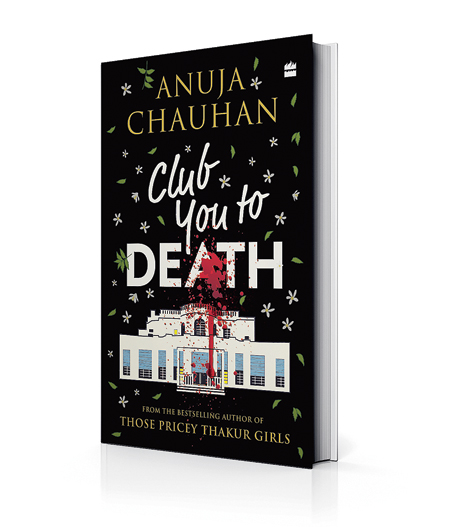
Club You to Death.
Are you comfortable with the tag of being a ‘chick-lit writer’?
I am not comfortable with tags in general because I feel that they are very reductive. It’s like being put in a box and labelled and asked to not even put your toe out of the said box. Now that I am older, I don’t even get into the quarrel of being called a chick-lit writer. I just prefer to not be called anything. Why make any assumptions about anybody and their craft? Isn’t that limiting?
Padam and Bhavani are two characters who are at the opposite ends of the feminist scales. Why did you feel the need to make them such extremes?
I believe there is a social responsibility to fiction; I can’t speak for others, but for me there is. When I was growing up, my parents weren’t religious, we didn’t go to temples. Our role models came out of literature. A reason why I have grown up so old-fashioned is because of this. My mother had four daughters and Little Women was like a bible in my house! Learning to enjoy however little you have, giving presents, ‘sisters before misters’ were lessons that all came from that book! So it is imperative for me to have such role models in my book as well.
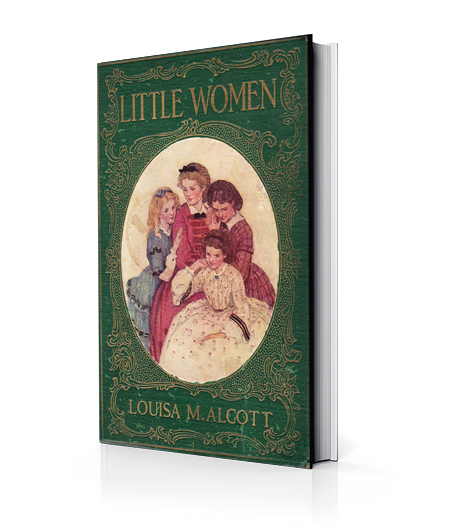
The book cover of Little Women.
How has the lockdown affected your writing and the evolution of art in general that you have observed around you?
I think there is a percolation process and for it to get into literature will take some time. We have lived through the lockdown, and now one has to let it get digested before it can come out of your fingertips as any form of art. You do see those knee-jerky shows on TV like Lockdown Ki Love Story, but I think they are just desperately trying to ride on the topicality. Any quality literature or art on this will definitely take a little time to come.
On a personal front, I just went into denial. I would lock myself in the basement, where I couldn’t hear the piano, people clanking weights or flirting on the verandah with masked people who have dropped in and the dogs barking! I got through only because of my writing and I would block everything out and use it as a survival technique. I began writing on January 16 last year and I submitted it on June 1 — it was that quick. I couldn’t deal with what was happening in the country.
What is your writing process like?
I have some kind of nebulous, vague process, something that excites me! I walk through the fog and as I am walking, things reveal themselves, for which I am grateful, and I put it down! (Laughs) I have some notions and goals and ambitions for certain characters that I want them to walk towards.
However, this book was different. I knew who the killer is. The process was very similar to the treasure hunts I would arrange for my kids on their birthdays! This book was a lot like that. My kids used to say, ‘Mumma, you have made it too obscure and too difficult. No one is ever going to find it’, and that stayed with me! I was worried that I shouldn’t make the clues too obscure. It was like covering my tracks, but not too cleverly also because I want some people to also get what I am trying to do. Along the way I wavered as well, having become too fond of my killer! But I managed to stick with my original plan.
Do you enjoy screen adaptations of your books?
I don’t enjoy screen adaptations of any books. It has never happened that I have looked at a film that has been adapted and said “Wah! Kya banaya hai” (Wow! They have made it so well!) I saw The Suitable Boy recently and it really broke my heart to see what they had done to it. I really love the book. For a dedicated reader, the faces are never what you imagined.
Now, for film-makers, the bigger concern and obsession has become the censorship certification. People are writing with one eye on the censor board. Like Tandav, which I thought was quite unobjectionable, got pulled off. Everybody is doing a lot of self-censorship to stay on the right side, which is extremely worrying. In our writing that doesn’t happen so much. I have a lot of interest in this book, but there are few threads that they would want to change and I am sure you can guess which one.
Tell us a little about your advertising to publishing journey?
I started writing ads because I wanted to write and I stopped writing ads because I wanted to write! It is writing of a sort but it is applied art. You have very shiny crayons, like a Shah Rukh crayon, or a Saif crayon and another big-budget crayon, but you have to use them to eventually talk about a new brand of rajma which has four new flavours! So there is very little you can do with your shiny crayons and I realised it was becoming really restrictive.
Another thing was as I got more senior, they keep kicking you upstairs and you end up doing less writing and more admin work. Everybody at work is scrambling for your attention and I am thinking that I have three children at home, what am I going to do with all these children at work now? I had nowhere to put my creative ideas anymore. So when I started writing The Zoya Factor, people at work asked if I was having an affair. I looked so happy and my face would be glowing! But I was just writing a book! That first book was like cycling downhill with the wind in your face — so exhilarating!

A still from the movie adaptation of 'The Zoya Factor'
Having been happily married for 27 years, how do you traverse the complicated world of modern dating when you write romances?
I get a peek into the current world of romance through my kids and their friends. The latter often tell me more than my own kids do! But I do think it’s sad what kids are doing these days. I don’t comprehend it. It’s like eating junk food with no restrictions and then being sick. This new generation has been so exposed to pornography and nobody talks about it. It’s all-pervasive and it is making relationships sick in ways that we haven’t even diagnosed yet.
Again, it’s about role models you know. What have you grown up watching? Something that is clearly unhealthy and not normal, it is bound to affect you in weird ways. I see kids dancing at clubs and wonder where a 13-year-old child has even learnt to move like this? I think that’s the biggest malaise.
However, all the kids have gone through this together so there is a sense of understanding and their wokeness is not on the surface. It’s actually inside them. They are genuinely different from the value judgments we used to make in the ’80s. I think it’s great that you have words like ‘judgey’ in your vocabulary because in a way, you are calling people out and you are questioning things like privilege, entitlement and more. These are good words to have and understand the world.
Since you have done the quintessential shift from holding down a 9-to-5 job to writing your own books, what advice would you give to aspiring authors stuck in the same predicament?
I would say just do it. I was like a jailed person who had found this one spoon to scrape and dig a tunnel out when I started writing the first book. Eventually, I could escape because I kept digging my tunnel. So my only advice would be to keep digging! (Laughs)
Now
READING: Brother Of The More Famous Jack by Barbara Trapido
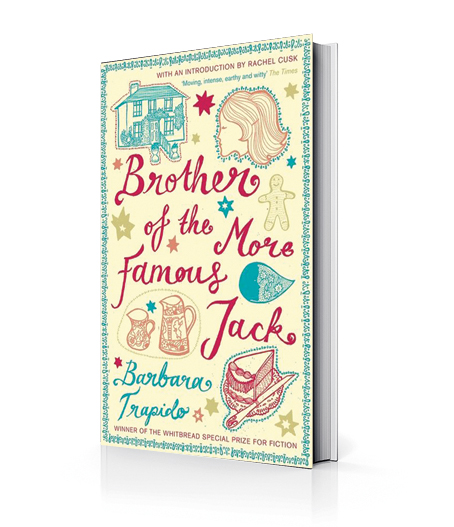
LISTENING: The Hindi wire on radio!
HATING ABOUT THE LOCKDOWN: What it was doing to people and the politics of the country
LOVING ABOUT THE LOCKDOWN: All my babies were home!
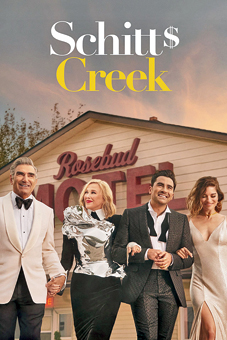
WATCHING: Schitt’s Creek






